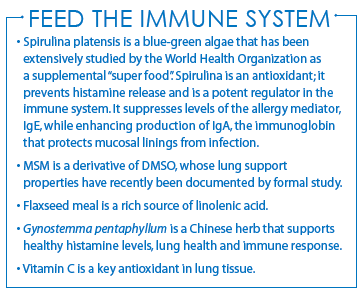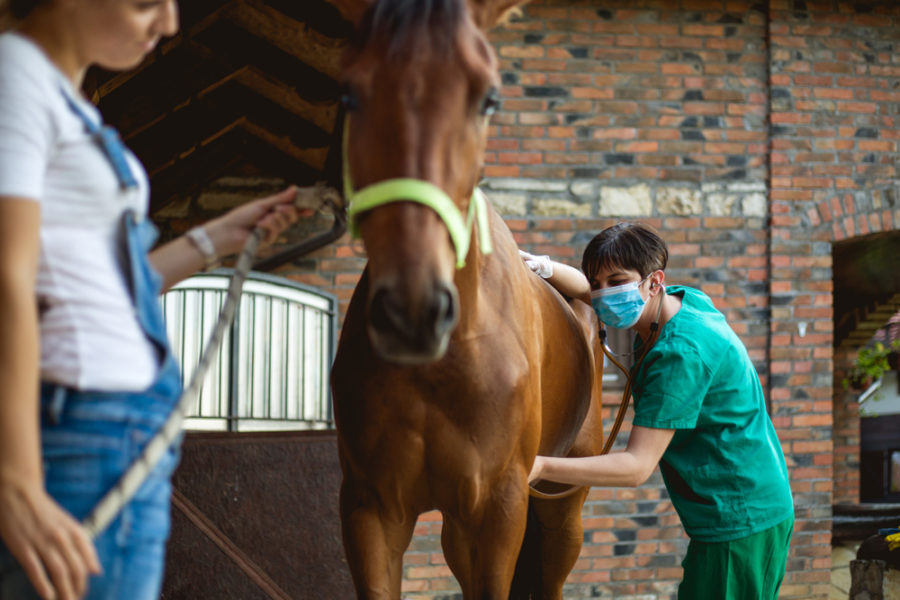“No hoof, no horse” is a familiar saying, but “no lungs, no horse” is equally true. Understanding respiratory infections is the first step to preventing them.
Respiratory infections are the most common infectious diseases in horses. An acute infection can sideline your horse anywhere from a week to a month.
The symptoms of respiratory infections are hard to miss:
• Runny nose/nasal discharge – clear to yellow or white
• Often, runny eyes or eye inflammation
• Cough – from dry to very moist
• Fever
• Depression/lethargy
• Poor appetite
• Changes in breathing pattern (normal respiratory rate is six to eight breaths per minute)
 Respiratory infections have several primary causes. Identifying the root of the problem will make it faster and easier to get the horse into recovery and minimize the risk of any lasting damage.
Respiratory infections have several primary causes. Identifying the root of the problem will make it faster and easier to get the horse into recovery and minimize the risk of any lasting damage.
Bacteria: Strangles is the most well known bacterial respiratory tract infection. It usually remains confined to the upper portions of the respiratory tract (throat and local lymph nodes), but can sometimes involve the lungs. At least 10% of strangles cases end up with chronic infections in the guttural pouch.
A wide variety of bacteria can infect the lungs and cause pneumonia. In otherwise healthy adults, this usually occurs after the lung has been irritated by a virus infection, or it can occur in horses with weak lungs because of chronic allergic disease.
Viral: Myxoviruses cause the most uniformly severe viral infection in horses – influenza. It typically causes higher fevers and more lung damage, and has many potential complications. Horses with influenza virus are usually sick for much longer than with other viruses.
Herpes virus in the form of rhinopneumonitis is very widespread. Once infected, the virus remains with the horse for life. Foals and aged horses are most likely to have symptoms, which range from a slight snotty nose to a cold-like illness with fever and cough.
Once the immune system gets on top of respiratory infections, the antibody response forces the virus to retreat inside white blood cells in the lymphatic system. It avoids complete destruction by constantly mutating, but this mechanism also keeps the immune system constantly activated and on its trail.







